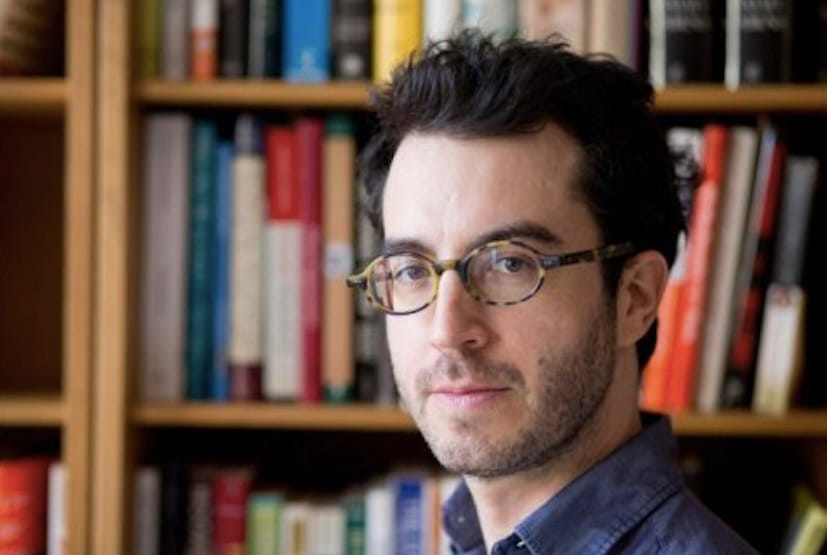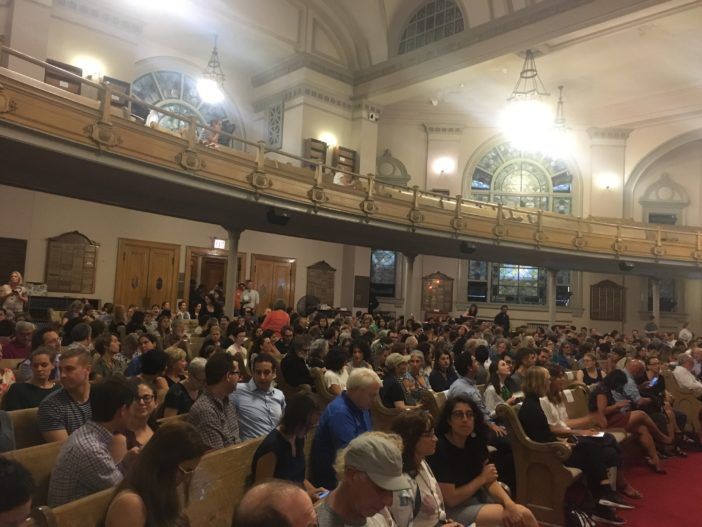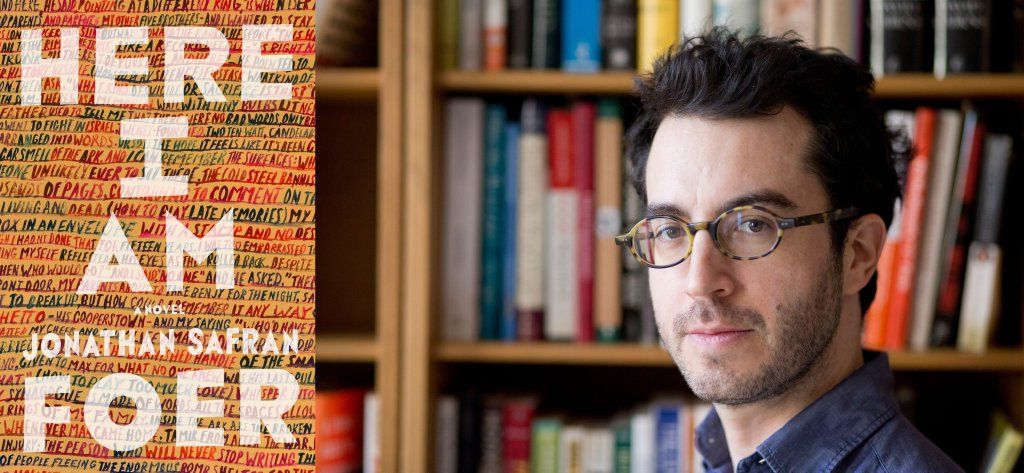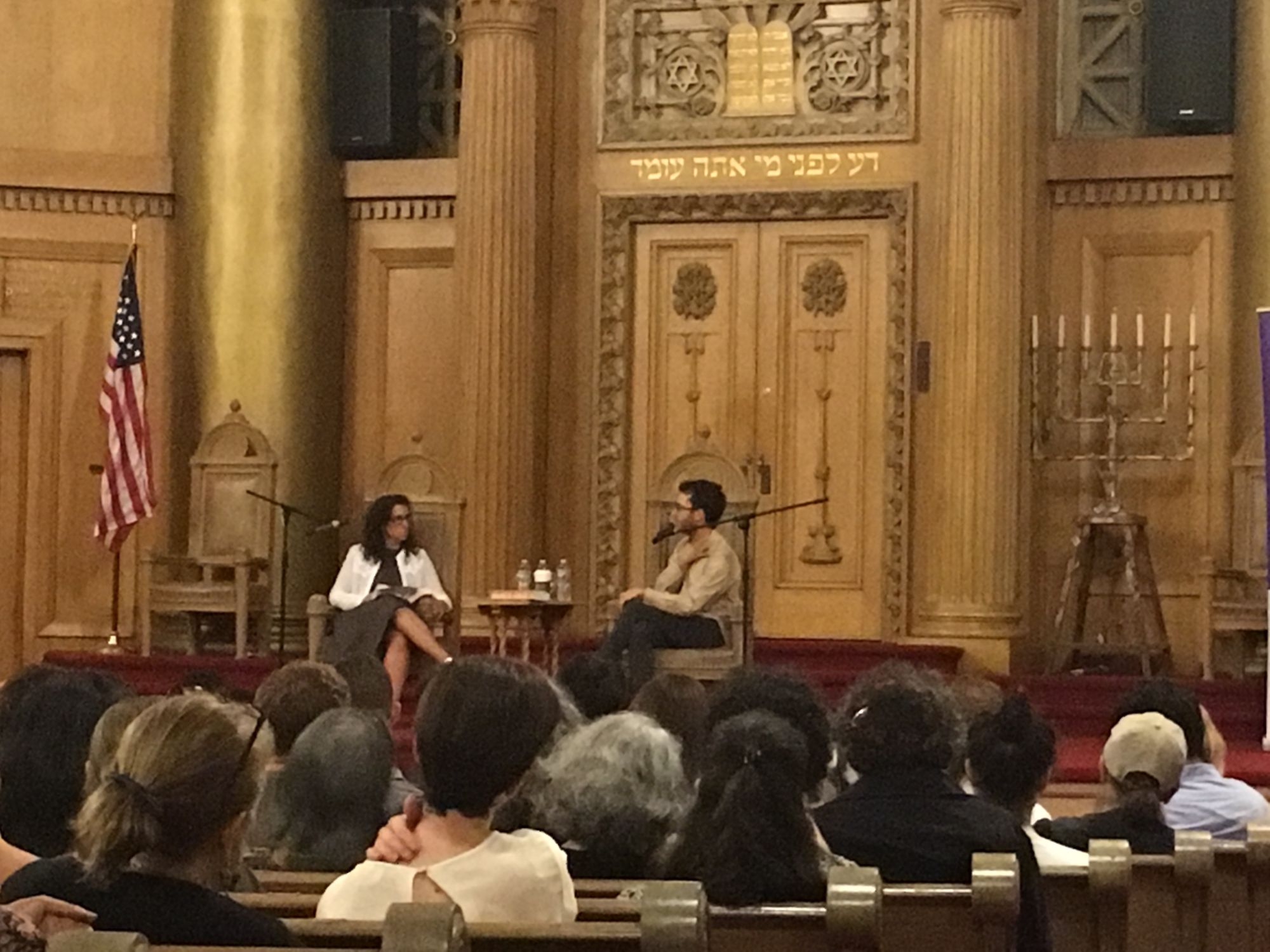Jonathan Safran Foer Unveils His New Book At Congregation Beth Elohim



The house was packed last Tuesday for Jonathan Safran Foer’s launch of his first novel in a decade, Here I Am, right here in Park Slope at Congregation Beth Elohim (CBE) — a synagogue where Foer drew inspiration for the book’s Judaic setting.
The conversation, led by author Jodi Kantor, was part of the Brooklyn By The Book series with Community Bookstore and the Brooklyn Public Library.
The 150-year-old Reform synagogue is an apt venue for author talks, boasting a reputation as an “unusually bookish congregation“. The gentle voices of both authors paired perfectly with the backdrop of massive stained-glass windows, golden columns, intricate carved moldings and vaulted ceilings.

Interviewer Jodi Kantor pushed Foer on the book’s Jewish themes and the author’s own relationship with Judaism, which he described as cerebral and buried in memory.
Here I Am derives its title from an origin story; the biblical scene in Genesis where God asks Abraham to sacrifice his only son, Issac. Abraham responds: I am present — without conditions or reservations, here I am, said Foer.
The book has been called Foer’s most ambitious work, delving into domestic and religious themes, like growing up in a Jewish family, a natural disaster disrupting Israel, the Holocaust, and an inexplicably soured marriage.
“This is the first book where I tried to remember something,” he said, deconstructing his subconscious childhood memories of the synagogue, etched in his brain long before he could identify their origins — referencing a relationship to tradition that runs through American Jewry.
In writing this book Foer also experienced a reorientation of scale. “There are scenes I never would have written five or ten years ago because they’re small,” Foer said. He describes two crisis at the heart of the book, and the compelling characters that grow comfortable in disorientation.
Foer himself seems most comfortable and animated when discussing the lives of his characters, as opposed to the more autobiographical questions, which tended to be leading, from Kantor.
“The characters all challenge each other by pushing the boundaries between words and actions, exploring the connection between language and personhood; and the difference between an imagined crisis, where we can plan who we want to be and experienced crisis, which reveals who we actually are,” Foer said.

The book also tells the poignant story of a dissolving marriage, and how the shame surrounding a cyclical withholding can drive two people apart. “As [the two characters] grew closer, on a primitive level they began to withhold, and were driven apart by an inexplicable shame,” said Foer.
Kantor added that the way these two characters drove each other crazy is ‘unnervingly convincing’, powerful because it happens without reason — a common fear about marriage.
“Common fear or common experience?” Foer batted back. “Even the distance between those words is another source of shame.”
Foer’s first book, Everything Is Illuminated, was a college project that became a massive success. But Here I Am has a more ambitious scope, both in process and outcome.
“I might never be as joyful and unrestrained of a writer, as I was when I was young,” Foer said.
“My previous books were indulgent and exuberant and not particularly efficient, but that’s my style. In this book there’s no distinction between working on my life and working on my book. It’s not autobiographical, but I am the sum of the characters,” said Foer.
He describes his writing process as intuitive and not necessarily driven by ‘good ideas.’ “I get stuck until an atmosphere, environment or emotional truth clears the bar,” he said. Foer’s novels are “products not of will or deliberation, but of energy.”
Brooklyn By The Book will continue their author talks series this week at CBE with Patti Smith and her newest book, M Train.




